At a Death Cafe, Tea and Couscous Make Mortality Easier to Swallow
Let’s talk about death, baby.

On a brisk November night, Tagine, a Moroccan restaurant tucked away on a quiet side street near Times Square, is alive with conversation. Nearly 20 people pack in around two tables cluttered with heaping, communal plates of steaming couscous, chickpeas, and yellow lentils. People exchange stories, laughs, and soft wedges of bread dipped in bright green chermoula. Multi-colored disco lights dance across the walls, and the swell of conversation rises and falls against a soft pulse of music and noise from the bar. A young, blonde woman walks through the door and surveys the crowd.
“Is this the singles’ event?” she asks, pointing to the tables. I shake my head.
“Nope,” I tell her. “This is the Death Cafe.” She thanks me, brow furrowed, and heads to the back of the restaurant.
While it may seem strange for conversations about death to be conflated with courting, our group could easily be mistaken for speed daters. Relatively young, open, and inquisitive, my dining companions exude a curious energy, solid appetite, and hunger for good conversation. But, unlike the majority of small talk with strangers, dialogue here is all about death—from philosophical musings about post-death life to the physiological components of dying.
“When the body is dying there are lots of … secretions,” says Tanya, a nurse who works in the intensive care unit at a local hospital. “We sometimes give patients medicine to try to dry them out and stop them from gurgling.”
“Is that what they call the death rattle?” someone asks from across the table.
Those noises, we learn, arise once the dying person can no longer swallow or clear fluid from the throat, and often indicates that they’re within a day of passing. But as disturbing as it may sound, the death rattle typically doesn’t cause the individual pain or discomfort. We talk about the sounds of death, and how to attempt to interpret them, sipping mint tea from delicate, warm glasses. “Having to take care of somebody who’s dying, and their family … it can be a lot. I want to talk about it with my husband, but I don’t want to fatigue him with it,” says Tanya. “But I think about it all the time.” It can be months, even years, she says, before she stops thinking about a patient who has passed away under her watch.
But not all Death Cafe diners come from professions that deal with death. According to Nancy Gershman, the facilitator of our cafe, attendees come from all walks of life, from college students with a philosophical curiosity about death to those who have witnessed something supernatural. Some people want to understand death better in order to prepare for their own. “I had this one 80-year-old who kept asking these roundabout questions,” recounts Gershman. “It turned out she wanted to know what dying was like.”

Gershman, who has been facilitating this Death Cafe for the past three years, says there’s no agenda. Meetings often meander thematically, driven by the questions and stories people bring to the table. But she’s quick to remind me that, while the Death Cafe is a safe space to talk about loss, it’s not a support group. “When you lose someone, there’s a particular period right after it happens where you keep repeating, like a groove on a record,” she says. “We’re not here to stay stuck in that groove.”
Instead, Gershman says, it’s a place to speak openly and inquisitively about the end of life. Formally established in 2011, the original Death Cafe arose as the brainchild of the late founder, Jon Underwood, in his East London home. Inspired by Swiss sociologist Bernard Crettaz’s café mortel, he set out to create an intentional space dedicated to talking death in order help people “make the most of their (finite) lives.”
Strangers began gathering in Underwood’s London basement to sip tea, munch on cake, and casually discuss death and dying. Before dying unexpectedly from undiagnosed leukemia in 2017, Underwood and his mother created accessible guidelines and protocols so anyone could create Death Cafes within their own communities. Since then, more than 7,300 cafes have cropped up in over 60 countries—an indication that they address a deep-seated desire to understand death, one that’s been ignored, if not avoided.
After remaining relatively tight-lipped on the topic for centuries, those in the U.S. are more willingly peeking into the abyss—a cultural moment that’s been dubbed the “positive death movement.” From the growing demand for end of life doulas to the creation of apps that send daily reminders that you’re going to die, it’s apparent that more people are interested in confronting death.
“There’s a growing recognition that the way we’ve outsourced death to the medical profession and to funeral directors hasn’t done us any favors,” Underwood told the New York Times in 2013. By avoiding the topic until it happens, we’re left with all sorts of strange feelings about this universal life event. And yet, many of us prefer to keep it at a distance.
Part of this aversion, Gershman suggests, is that talking about it reminds us that it’s real. It shakes the comfortable illusions many of us cling to—that our bodies and brains are ours to control and keep. Sitting around the table, talking about how to financially plan for our funerals (to keep our partners and families from going into debt) can feel alien, even morbid, at first. But, through sips of mint tea, mouthfuls of warm lentils, and a few laughs, I’m reminded that it’s as necessary as making a financial plan before any big life event, such as going to college or getting married.
The strangeness of talking about death, Gershman says, goes beyond the mere fact that it’s been a longtime taboo topic in some cultures. There’s a lot of subject matter that’s taboo, she says, but death is different—largely because it’s inevitable. She compares it to the sex-positive movement in the U.S., where much of the silence surrounding sexuality has been stripped away to increase transparency and dismantle stigma. “People still have a choice when they’re talking about sex. You can either have sex zero times … or many times. But with death, you don’t have a choice. It’s going to happen, and it’s not going to be in your control.”

While making death less taboo will help us understand it and plan for it, it can’t help us prevent it. So planning for it is both frightening and necessary. But by ensuring tea and food are present, hosts of the cafes are able to make discussions of dying a little less scary. “There’s a superstition that if you talk about death, you invite it closer,” said Mr. Underwood. “But the consumption of food is a life-sustaining process. Cake normalizes things.”
My tablemates seem to agree that eating makes engaging with death easier. Tanya mentions that the pediatric unit has a giant bowl filled with candy, and it’s intended for the staff, not the patients. Digesting and processing death might be easier when accompanied by something sweet, something that nourishes us, something we understand to be routine. Like death, eating is something all living bodies simply have to do.
As the night progresses, one attendee whose husband passed away a few years ago tells me that, when she lost him, she lost her appetite, too. But in the past few years, her love for food, particularly dark chocolate, has returned forcefully. “Now, I eat it and I can’t stop,” she chuckles. She reaches into her purse, shuffling around a bit before pulling out three wrapped Hershey’s Dark Chocolate with Almonds nuggets, and hands one to each of us, smiling.

Even after years of facilitating Death Cafes, Gershman finds herself surprised by the feverish interest the cafes continue to garner. Month after month, newbies and returners come to talk death with strangers. A big part of the appeal, she ventures, is that death is great fodder for in-person conversation. “This is a subject that people can stay on, as opposed to babysitters and real estate,” says Gershman. “Death is such a rich topic that you could approach it in a million different ways and never be bored.”
Back at Tagine, conversation shifts from the life and death lessons learned from watching Golden Girls to the weirdness of grieving on social media. In a group of complete strangers, no one looks awkward or distracted, and no one is fiddling with a phone. “I really think that people are starved for interesting conversation at dinner,” laughs Gershman.
As I gulp down my piece of chocolate, another swell of laughter erupts from the table to my left. In comparison, the singles’ event in the back seems relatively lifeless. Gershman tells me that what I’ve seen and felt tonight is no anomaly.
“One of the waiters told me, ‘Whenever your group comes in, there’s always such great energy.’” she says. When she told him that this was a Death Cafe, a group focused on death and dying, he thought he had misheard her. “I think it’s because there’s a tremendous sense of relief. When you have relief, there’s more laughter.”
Gastro Obscura covers the world’s most wondrous food and drink.
Sign up for our regular newsletter.






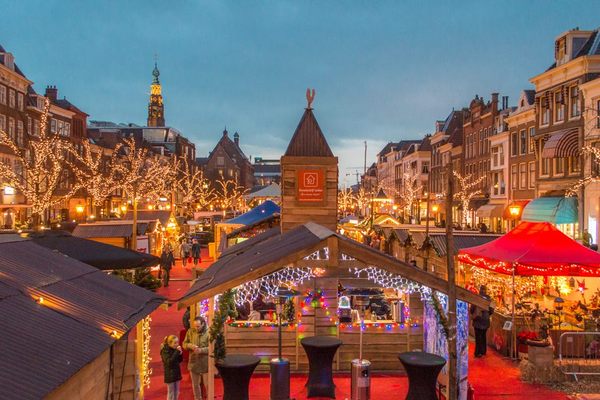



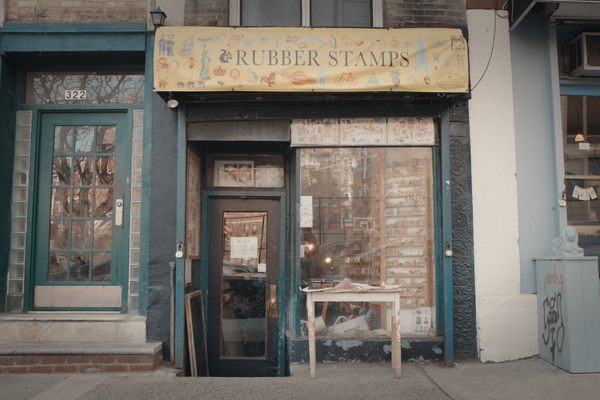




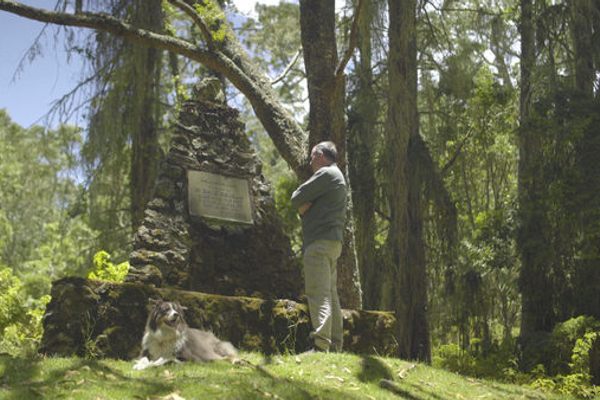









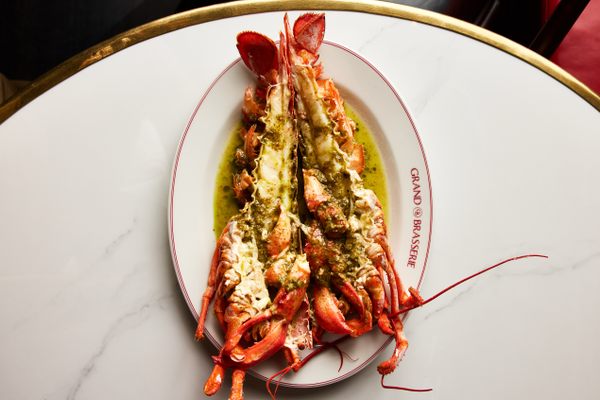
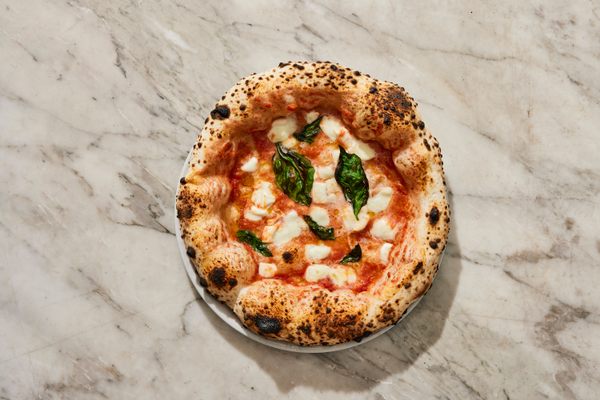
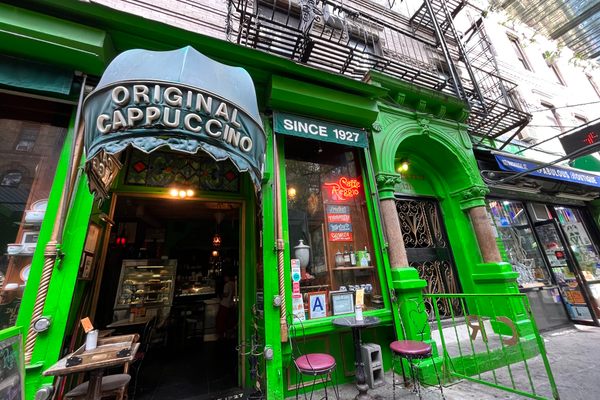

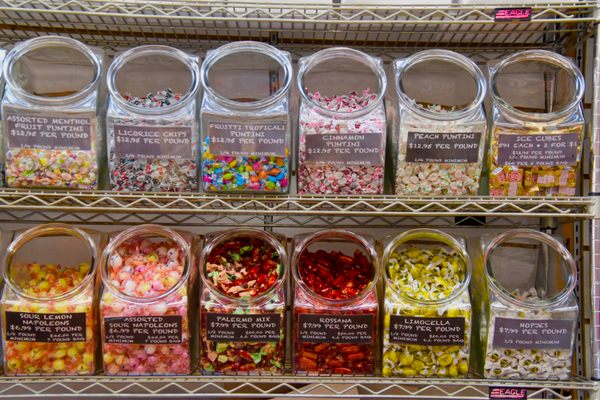


Follow us on Twitter to get the latest on the world's hidden wonders.
Like us on Facebook to get the latest on the world's hidden wonders.
Follow us on Twitter Like us on Facebook